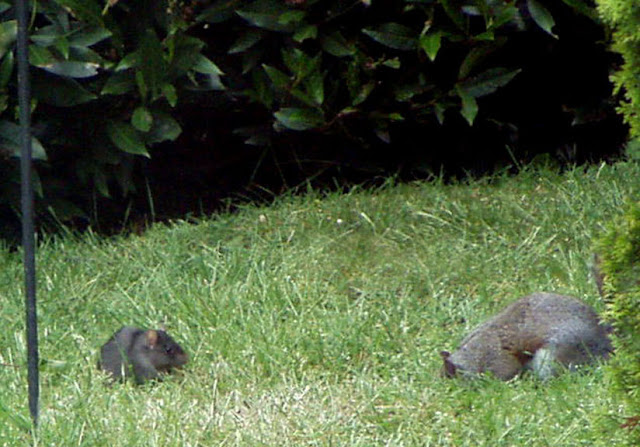How to protect your children and pets from poisons meant for rats and mice
Tuesday, November 1, 2022
 |
| Squirrel and rat eating birdseed dropped from a bird feeder. Photo by Tom Bewley |
Written by Karley Johnson, Environmental Health
on Public Health Insider blog
Many people’s first instinct is to use rodenticides – also known as rat or mouse bait – to poison the intruders. Unfortunately, misuse and overuse of these poisons are common and can harm children and pets.
Rodenticides are a major risk to children and pets
U.S. poison control centers receive over 10,000 calls every year about children eating rodent poison. Most of these calls are for children under three years old.
Additionally, the Environmental Protection Agency reports that “if a child under six goes to the hospital for pesticide poisoning, it’s likely it was related to rat poison. Rat poison is the leading cause of pesticide-related visits to health care facilities in children under the age of six years. They are the second leading cause of pesticide-related hospitalization.” Pets are also frequently poisoned by rodenticides.
Safer and more effective strategies
To reduce the need for rodent poison and keep rodents out of your home long term, use the Seal Up, Trap Up, Clean Up method:
- Seal Up: stop rodents from entering your home – check inside and outside for gaps or holes and seal any holes you find. Check for small and large holes – mice can fit through a hole the width of a pencil (1/4 in or 6 mm in diameter).
- Trap Up: trap rodents around the home to help reduce the rodent population.
- Clean Up: If you have mice or rats in or around your home or vehicle, clean up all urine, droppings, dead rodents, and nesting materials safely. One of our past blogs (this webpage is in English only) has more information about how to stay safe while cleaning areas with rodents.




0 comments:
Post a Comment